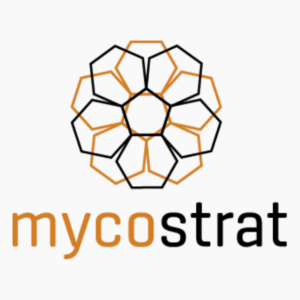
MycoPlex develops recyclable, bio-based wall modules made from wood, mycelium composite, and natural plaster. The system is fully renewable, compostable, and free from harmful substances, offering excellent insulation, moisture buffering, and indoor climate performance. It minimizes the use of high-grade timber through an optimized frame and load-sharing mycelium core. Unlike conventional drywall systems, MycoPlex enables true circularity from production to end-of-life. The solution targets modular and sustainable construction and is being developed in collaboration with HSLU, combining architectural design, building physics, and material innovation for a scalable and climate-positive alternative to standard lightweight wall systems.
During the CBI Booster Program, MycoPlex will focus on developing and testing full-scale wall module prototypes (3×2 m) using optimized mycelium composites and minimal timber framing. Key priorities include reducing material shrinkage, improving substrate moisture control (<40%), and ensuring strong, durable bonding between the mycelium core and wooden frame. We will also evaluate natural plaster integration and thermal-hygro performance. In parallel, we’ll explore circular design strategies, assess user and market desirability, and define a roadmap for scalable production. The goal is to demonstrate technical feasibility, validate use cases, and prepare for pilot applications in modular and sustainable building.
MycoPlex uses fully renewable, biodegradable materials—wood, mycelium, and natural plaster—to create wall modules that are easy to disassemble, recyclable and even compostable. By avoiding synthetic adhesives and minimizing material complexity, the system enables complete biological and technical circularity, contributing to a built environment where components can be safely returned to natural cycles or reused without waste.

